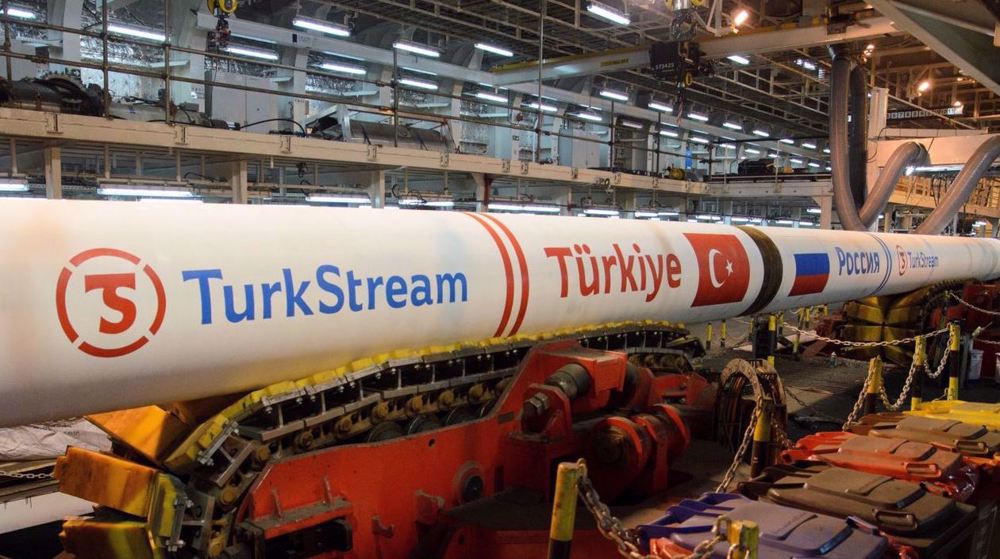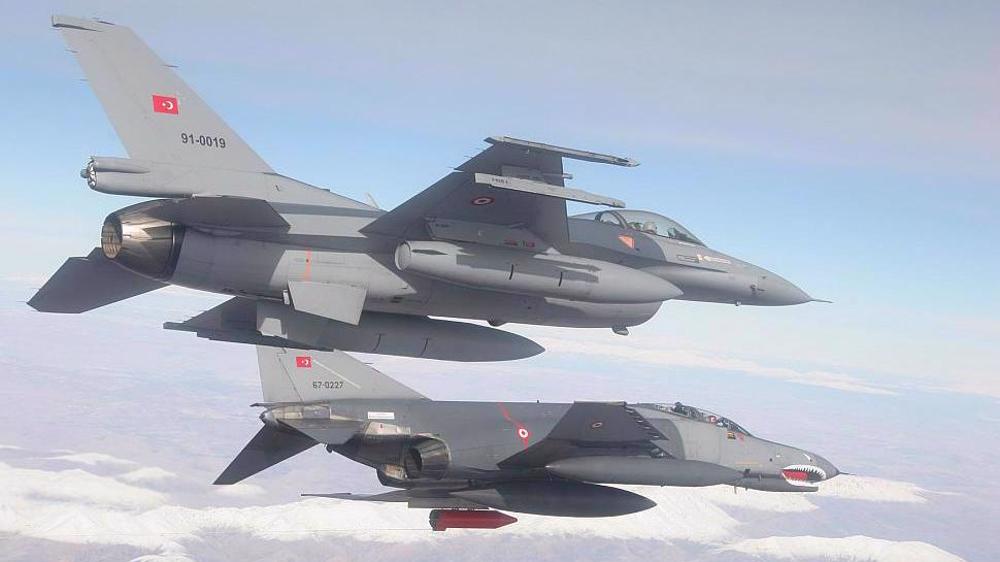Syria ceasefire not to affect offensive in Afrin: Turkey
Turkey welcomes a United Nations Security Council resolution on a month-long ceasefire in Syria, but says it will have no effect on Ankara's ongoing cross-border offensive in Syria’s northwestern region of Afrin against the Kurdish People’s Protection Units (YPG).
The UN Security Council on Saturday unanimously voted in favor of a resolution demanding a 30-day truce in Syria 'without delay' to allow aid delivery and medical evacuations.
The resolution was adopted by 15 votes to none, after several delays and a flurry of last-minute negotiations amid growing concerns about the humanitarian situation in Eastern Ghouta near the Syrian capital of Damascus.
Eastern Ghouta has witnessed renewed violence in the past few days, where terrorists have mounted repeated mortar attacks on the Syrian capital in the face of an imminent rout. Western powers, however, blame the Syrian government and Russia for the crisis.
"We welcome the resolution adopted by the UN Security Council in response to the worsening humanitarian situation all across Syria, in particular in Eastern Ghouta," Turkey's Foreign Ministry said in a statement on Sunday.
However, the ministry added, Turkey "will remain resolute in fighting against the terrorist organizations that threaten the territorial integrity and political unity of Syria."
Read more:
- Russia, France, Germany leaders urge 'information exchange' on Syria
- Turkish army shells pro-Syrian government forces as they enter Afrin
- Afrin residents celebrate arrival of pro-government forces
- Turkish military not avoiding civilians in strikes against Syria’s Afrin: HRW
Turkey launched the so-called Operation Olive Branch in Syria's Afrin on January 20 in a bid to eliminate the YPG, which Ankara views as a terror organization and the Syrian branch of the outlawed Kurdistan Workers' Party (PKK).
Turkey has warned that the Afrin offensive could expand to the nearby Syrian city of Manbij.
Damascus on February 1 complained to the UN about Turkey's military campaign in northern Syria, denouncing the operation as "an assault and occupation" of the Syrian territory.
Ankara continues to "spread lies" about its military aggression against Syria and tries to justify the action as an act of self-defense, Syrian Foreign and Expatriates Ministry said in two letters addressed to the UN chief and the Security Council chairman.
Syrian President Bashar al-Assad in January condemned Turkish military operation in Afrin, stating that the offensive was part of Ankara's support for Takfiri terrorist groups operating inside the conflict-plagued Arab country.
“The brutal Turkish aggression on the Syrian town of Afrin cannot be separated from the Turkish regime's policy from the first day of Syria's crisis, which was essentially built on supporting terrorism and terrorist organizations, whatever their names,” Assad said in statements.
Operation Olive Branch has heightened tensions with the United States, which works closely with the YPG in fighting against Daesh terrorists in Syria.
Meanwhile, Turkish Deputy Prime Minister Bekir Bozdag insisted that his country's operation in Afrin would not be affected by the unanimous UN demand for a ceasefire in the war-ravaged country.
"There is no question of this decision (by the UN Security Council) having any affect on the operation that Turkey is pursuing," Bozdag said in televised comments.
Turkey's President Recep Tayyip Erdogan has also said that there would be no let-up in the Afrin operation, without directly mentioning the Security Council's resolution.
"It will continue until the final terrorist is destroyed," Erdogan said in the southern city of Sanliurfa.
He added that Turkey had killed more than 2020 "terrorists" since the beginning of the operation, although it is not possible to verify this figure.
While Turkey is coming under mounting pressure over reports of rising civilian casualties, Erdogan has announced plans to expand the offensive to city of Manbij where Turkish troops are likely to face US-led forces.
Speaking to reporters at the Munich Security Conference on February 18, Turkish Foreign Minister Mevlut Cavusoglu rejected claims by Kurdish forces and a monitoring group that Ankara had carried out a gas attack in its ongoing offensive in Afrin.
He said Turkey had never used internationally-banned chemical weapons in its operations in Syria, adding that his country took the utmost care to protect civilians in the cross-border military operation.
Operation Olive Branch in Afrin region is Turkey's second major military intervention in Syria during the foreign-backed militancy that broke out in the Arab country in 2011.
In August 2016, Turkey began a unilateral military intervention in northern Syria, code-named Operation Euphrates Shield, sending tanks and warplanes across the border. Ankara claimed that its military campaign was aimed at pushing Daesh from Turkey's border with Syria and stopping the advance of Kurdish forces, who were themselves fighting Daesh.
Turkey ended its campaign in northern Syria in March 2017, but at the time did not rule out the possibility of yet another act of military offensive inside its southern neighbor.
Read more:
How Los Angeles’ pistachio tycoons facilitated and profited from city’s wildfires
Iraqi PM: Iran was in Syria to fight terrorism; presence requested by Damascus
Hamas: Israel's massacre in Jenin camp won’t break resistance
60 bodies recovered from abandoned South African gold mine: Police
Biden administration ‘quietly’ circumnavigating own ban on TikTok: Report
Iran Navy takes delivery of first advanced ‘signals-intelligence’ destroyer
Italian TV exposes Israeli manipulation of EU institutions
UK anti-corruption minister Siddiq resigns over links to Bangladesh ‘embezzlement probe’














 This makes it easy to access the Press TV website
This makes it easy to access the Press TV website